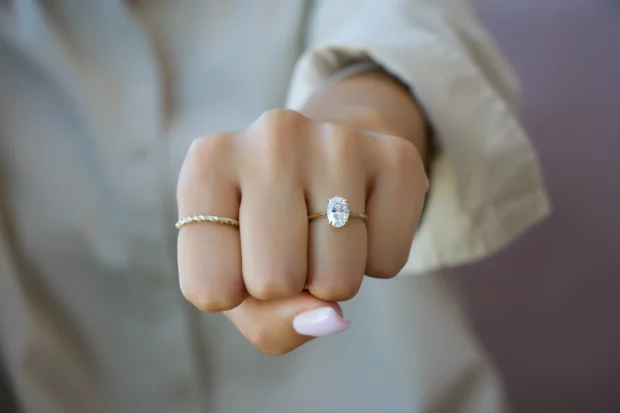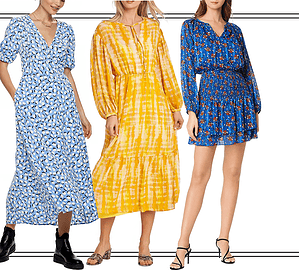In a shift catching the eye of style watchers everywhere, Generation Z is making waves for its distinct approach to fashion and jewelry. Unlike previous generations that leaned heavily on fast fashion and affordable accessories, today’s youth are steering towards quality over quantity. This change isn’t just about style; it reflects deeper values prioritizing sustainability, individuality, and long-term investment. Let’s dive into why this shift is happening and what it means for the future of fashion.

Embracing Timelessness Over Trends
One of the most significant shifts observed among Generation Z is their preference for items that promise durability and timelessness. For many in this generation, fashion is no longer about keeping up with the ever-changing trends set by seasonal runway shows. Instead, there’s a growing appreciation for pieces offering a timeless outfit touch. Whether it’s a well-crafted watch or a simple, elegant piece of jewelry, young consumers are looking for items that won’t just last a few washes or fade with the season’s end.
This shift is deeply rooted in the environmental consciousness that defines Gen Z. As the true digital natives, they have unprecedented access to information about the impacts of fast fashion on the environment. The knowledge that cheap, trendy pieces contribute to massive waste and pollution drives them towards more sustainable shopping habits. By choosing quality over quantity, they’re making a style statement and declaration of their values and commitment to a healthier planet.
The Rise of the Minimalist Wardrobe
Gen Z’s embrace of the minimalist wardrobe is parallel to their pursuit of timeless pieces. This concept concerns having fewer but better-quality items that mix and match seamlessly. The minimalist approach isn’t just about decluttering physical space—it’s about creating a more thoughtful and intentional approach to consumption.
Gen Zers are increasingly rejecting the idea that more is better. Instead, they are curating their wardrobes with a focus on versatility and sustainability, choosing pieces that can be worn in various ways and on multiple occasions. This not only reduces the need to constantly buy new outfits but also helps in reducing the clutter that comes with having too many clothes.
The minimalist wardrobe reflects a broader shift in how young people today are choosing to live. They can invest more in experiences and less in possessions by prioritizing quality. This mentality extends beyond fashion, influencing decisions about electronics, vehicles, and other consumer goods. It’s a holistic approach that seeks to simplify life and focus on what truly adds value.
Diamonds: The Forever Favorite
Nowhere is the penchant for enduring quality more evident than in Gen Z’s renewed interest in diamonds. Far from seeing them as traditional or outdated, young consumers recognize diamonds as the epitome of sophistication and a smart long-term investment. The allure of diamonds isn’t just in their timeless beauty or the luxury they signify but in their practical appeal as durable, lasting jewelry pieces.
Social media and celebrity influences play a significant role in this trend. When young icons like Zendaya or Timothée Chalamet sport diamond pieces, they’re not just showing off a high-end look but signaling a shift back to quality and craftsmanship. For Gen Z, diamonds are more than just adornments; they are a statement of personal style and ethical consciousness.
The interest in diamonds extends beyond mere aesthetics. This generation is deeply interested in where their jewelry comes from, how it’s made, and the ethical implications of their purchases. They prefer responsibly sourced diamonds and often opt for brands that can provide transparency about their supply chains.
Diamond earrings are emerging as the frontrunner in jewelry preferences among Gen Z. These pieces are seen as versatile and elegant, capable of elevating any outfit while maintaining a connection to ethical consumerism. The preference for diamond earrings reflects a broader trend: investing in fewer, high-quality pieces that can last a lifetime rather than filling drawers with items that quickly go out of style.
A Shift in Shopping Practices
Generation Z’s approach to shopping has undergone a radical transformation. Gone are the days of impulsive buys at every sale sign; instead, thoughtful, researched purchases have taken precedence. Young shoppers are now more likely to frequent brands that resonate with their aesthetic sensibilities and align with their ethical standards. This discerning approach extends to both online shopping and brick-and-mortar experiences, where Gen Z demands transparency and sustainability.
This shift is also reflected in young consumers’ rising popularity of vintage and second-hand markets. Platforms like Depop and Vinted are booming, driven by Gen Z’s desire to find unique pieces that won’t contribute to the ongoing environmental crisis. This trend of “recycled fashion” promotes an eco-friendly approach and allows for the expression of individual style through rare and retro finds.
Crafting Personal Stories Through Jewelry
Jewelry is no longer just an accessory for Generation Z; it’s a form of self-expression and a way to carry personal stories and memories. This shift towards meaningful jewelry is part of why diamonds have become particularly significant with their nearly indestructible nature. Each piece of jewelry chosen is often seen as a marker of a milestone or a personal triumph, adding depth and narrative to their preferred minimalist wardrobes.
The trend extends beyond diamonds to include custom-made pieces and artisanal jewelry from local designers. Gen Z shoppers appreciate jewelry that offers beauty and quality and a connection to the artist or the cultural heritage it represents. This personal connection ensures that each piece isn’t just worn; it’s cherished and often becomes a part of the wearer’s identity.
The Future of Fashion: Sustainable and Chic
Gen Z’s preference for quality over quantity is setting new standards for production and design, pushing brands towards greater responsibility and innovation. This generation is redefining luxury, not through price tags or flashy logos, but through the inherent value and stories behind their chosen pieces.
This movement towards sustainable fashion reflects a broader desire for authenticity and transparency in all aspects of life. As more young people choose to invest in fewer, better-quality items, the industry must adapt to meet these new expectations with sustainable practices that are as advanced as they are ethical.
Generation Z is not just changing the way we think about fashion and jewelry; they are setting the stage for a more sustainable and ethical future in the industry. Their choices reflect a deep-seated desire to positively impact the world, proving that style and substance can indeed go hand in hand. As they continue to champion quality over quantity, their actions may inspire other generations to rethink their consumer habits in favor of a more thoughtful and sustainable approach to fashion.



